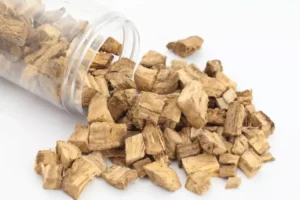What Alcohol Can Do to Your Biological Age Northwestern Medicine

Of course, rapid aging affects your physical appearance. Women who had 28 drinks or more per week had a 33 percent higher chance of developing the same syndrome. By adding extra stress to your body and depriving it of the nutrients it needs to rebuild, alcohol can place you years ahead in the aging process, and affect how you look. Should you aim to cut back on drinking or quit altogether? It’s a personal choice, but if you have an alcohol addiction, dropping the habit is likely the healthiest option.
- Research shows that people who drink heavily have a 33 percent greater chance of getting arcus senilis, a telltale gray ring around their corneas before they turn 60.
- Take the time to learn about alcoholism and alcohol abuse, including common signs, effects, and myths.
- Psoriasis not only affects the skin’s appearance but can also lead to discomfort and a significant impact on quality of life.
- Or perhaps a diagnosis of dementia, cancer, or a similar condition has robbed you of your sense of independence.
- It also has a diuretic effect that can cause dehydration.
- An aging parent might push back on the idea that they have a drinking problem.
Alcohol Consumption Changes the Aging Clock
The more time and difficulty you have to acquire the alcohol, the less likely you are to drink. But if you don’t have activities or interests to replace work, retirement can be a stressful time where you might feel bored or directionless. A loss of identity, status, or purpose can even contribute to feelings of depression in older adults. Many older adults are drinking more, but alcohol use comes with unique risks as you age. Even if https://ecosoberhouse.com/ you’re drinking to cope with the challenges of aging, there are ways to cut back.
What Can Go Wrong With Your Feet As You Age
- They’re not responsible for your behavior, but they can offer gentle reminders or avoid encouraging you to drink more.
- Moderate drinking is defined as 14 or fewer drinks per week for men, and seven or fewer drinks per week for women.
- Alcohol misuse and alcohol-related harms are also increasing among this population, and at a faster rate for women than men.
Therefore, detox can be done at either a local medical facility, dedicated detox center, or treatment center that also offers detox services such as Grace Land Recovery. Attempting to self-detox can end up causing even more harm and can even be life-threatening. Excessive alcohol use can have other visual and non-visual adverse effects on the body that can cause premature aging. The study was conducted in over 2,000 individuals including both healthy participants and persons living with HIV.
Alcohol Abuse
- Most of us want to live a long, healthy life, but how do we do that?
- Let’s also take a look at why, as you get older, drinking alcohol may affect you differently.
- Don’t fall for the belief that you’re too old to learn something new.
- Because you need water for almost every bodily function, including blood circulation and lubricating joints, you may feel the effects of aging more intensely if you drink regularly.
- Beyond the examples noted above, alcohol has the potential to interact negatively with many other commonly prescribed medications.
If you struggle with alcohol abuse, it’s not just the hangover making you feel achy and look haggard. You could be suffering from the aging effects of alcohol. Alcohol impacts your health on many levels, and the effects of alcohol on skin and aging can make you feel less than your best. Many people experience renewed vitality in recovery as their bodies begin to heal from these detrimental effects of alcohol. What’s more, people who suffer from alcohol use disorder may neglect their health in other ways.
Why age and alcohol don’t mix
- Everyone ages differently so your chronological age and biological age may be the same or they can be different.
- Changes in your body’s hormones can lead to difficulty sleeping as you age.
- However, there are healthier ways to manage stress and boost your emotional resilience.
- These include aspirin, sleeping pills, heart drugs, acetaminophen (Tylenol, others), allergy medication, pain medication, and anxiety or depression medicine.
- “Currently, the recommendation is that after age 65, men and women should have no more than seven alcoholic drinks per week,” he says.
It’s a common concern, especially as we start to does alcohol make you look older notice changes in our appearance over time. The relationship between alcohol and aging goes beyond just feeling tired after a night out. Regular alcohol consumption might have a broader impact, potentially accelerating the aging process and influencing not only how you look but also your overall health.
What are the Signs of Alcohol Abuse?

Age is a risk factor, but most people don’t exhibit this sign of aging until they’re close to 80 years old. However, people with chronic alcohol abuse are more likely to get arcus senilis as early as 60 years of age. Alcohol can affect the way your body fights off life-threatening illnesses like tuberculosis or pneumonia. Researchers are also studying the possibility that alcoholic liver disease might be caused, at least in part, by your immune system attacking healthy body tissues. Heavy alcohol consumption not only causes visible changes to our body that make us look older — it actually accelerates our aging at a cellular level. This puts us at an even greater risk for prematurely developing cancer or disease.

Alcoholism and Alcohol Abuse
The emotional stress caused by addiction can lead to chronic stress, a well-known accelerant of aging, manifesting in both mental and physical health decline. The ways in which alcohol can affect someone internally are widely known and documented. Overtime alcohol can do damage what is alcoholism to key organs of the body including the liver and the brain.

Not only are boozy drinks often empty calories with little to no nutrients, but alcohol can cause people to eat more food. When the liver is working hard to detoxify the body from alcohol, it creates more free radicals than the body’s antioxidants can handle, which leads to something called oxidative stress. Studies have shown that oxidative stress is an important contributing factor in aging.
